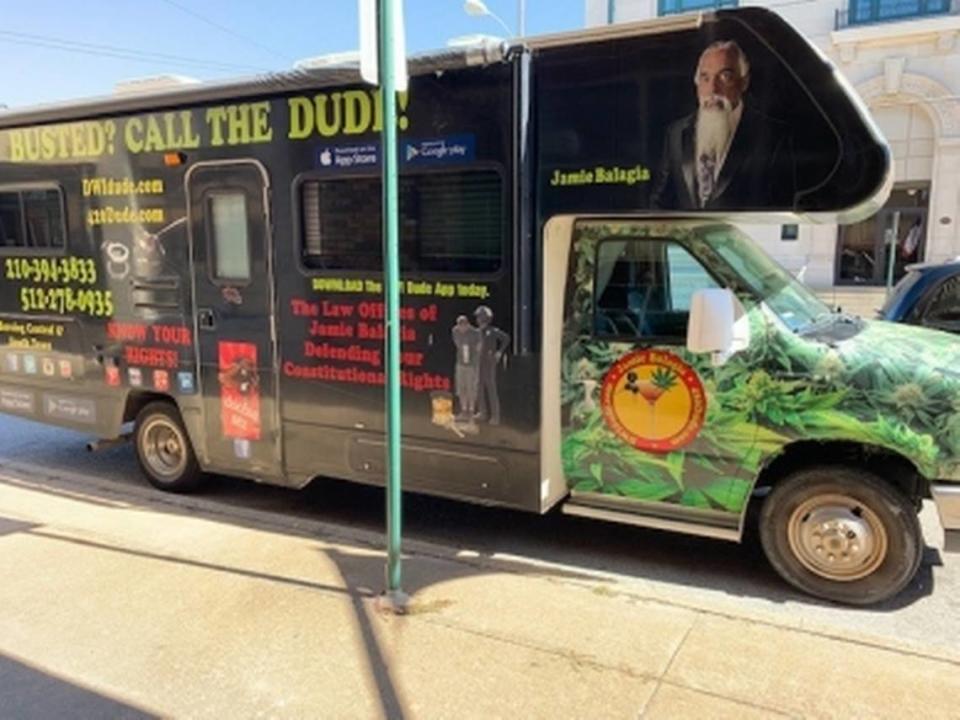‘DWI Dude’ lawyer convicted of swindling Colombian traffickers is sentenced in Texas
Locked inside a prison cell in Bogota, their client demanded they tell him where his $1.5 million had gone.
The Texas lawyer, known back home as the “DWI Dude,” along with his private investigator and a Colombian attorney, again discussed the deal with the prisoner, Segundo Villota Segura, who was fighting extradition to the U.S. for a cocaine trafficking case, according to court documents.
An FBI agent who listened to a recording of the conversation later testified that Segura hired the lawyers to pay off influential U.S. officials who could make his criminal charges go away.
When Segura asked for names of these officials, they refused to answer, the FBI agent testified.
That’s because it was a ruse, according to federal prosecutors.
Neither lawyer James Balagia, who made his nickname by defending people charged with drunk driving, Chuck Morgan, his private investigator from Florida, or Colombian lawyer Bibiana Perea paid any bribes nor was anyone expecting money, officials say.
They had tricked Segura and two other suspected Colombian drug traffickers into paying them large sums of money, officials say.
“This defendant and his group were running a scam on drug dealers — some of the biggest drug dealers in the world,” U.S. Attorney Joe Brown said in a statement following the 2019 conviction of Bagalia, the last of the trio to be found guilty. “Fortunately for him, these drug dealers chose to turn him into the FBI rather than handle it any other way.”

On Monday, a federal judge in Texas sentenced Bagalia to just over 15½ years in prison.
Bagalia, who had law offices in Manor and San Antonio in Central Texas, was convicted of conspiracy to commit money laundering, obstruction of justice, violation of the Kingpin Act, conspiracy to commit wire fraud and conspiracy to obstruct justice.
The Kingpin Act bans Americans from engaging in financial transactions with people whose names appear on a list of drug traffickers unless approved by an office within the U.S. Treasury Department.
Bagalia, a Libertarian Party candidate for Texas Attorney General in 2014, was accused in the same year of receiving $350,000 from suspected trafficker Hermes Casanova Ordonez and $900,000 from Segura, according to an indictment.
In 2016, Segura’s brother, Aldemar Villota Segura, paid Bagalia and others $1.2 million to get money to “the right people to get him off the charge,” according to the indictment.
Prosecutors say Balagia provided Colombians with his personal bank information so a network of anonymous people across the U.S. could deposit money into the account. The daily deposits totaled less than $10,000 to avoid detection by authorities, officials say.
Bagalia also received bulk cash payments from $70,000 to $120,000, including an exchange in the parking lot of a mall in a Houston suburb, officials say.
“We live in a country with the greatest system of justice in the world,” Acting U.S. Attorney Nicholas Ganjei said in a statement. “That system, however, cannot function when officers of the court are corrupt. The evidence in this case demonstrated that Balagia had been shaking down his clients for years by claiming that he was able to purchase favorable deals from prosecutors and judges alike.”
20-year-old mistaken as teen’s killer shot to death at memorial event, Texas cops say
